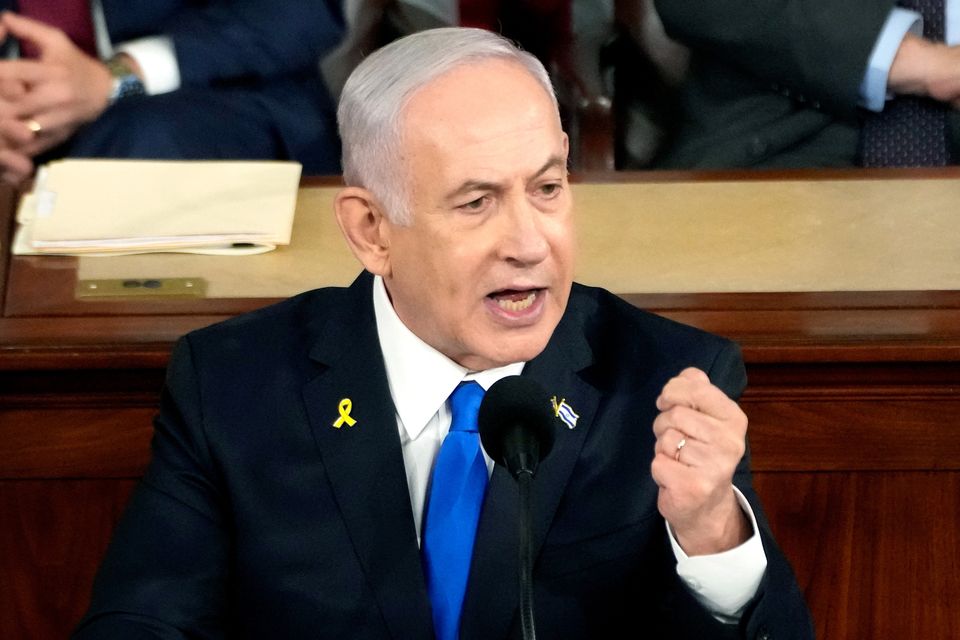
Israeli prime minister Benjamin Netanyahu addressing a joint meeting of Congress at the US Capitol in July. Photo: Getty Images For months, the refrain has been the same. Even as they backed Israel to the hilt, US officials repeatedly stressed that they didn’t want to see a wider war explode across the Jewish state’s northern border with Lebanon.
Leaders of the Lebanese Shiite group Hezbollah – a long-time Israeli antagonist – and their supporters in Iran, signalled that they, too, had little desire for a full-blown conflict. In Israel, top political and security officials in a country already in the throes of a sweeping, bloody campaign against Hamas in Gaza bickered over what to do about the threat posed by Hezbollah – recognising, perhaps, that the Middle East’s most powerful military may be too stretched by another massive war. Join the Irish Independent WhatsApp channel Stay up to date with all the latest news.















